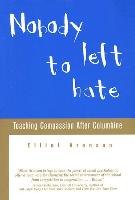On April 20, 1999, the halls of Columbine High School in Littleton, Colorado, reverberated with the sound of gunshots as two students, highly armed and consumed with rage, killed thirteen students and seriously injured twenty-three before turning the guns on themselves. It was the worst school massacre in out nation's history. Can we prevent a tragedy like this from happening again?
In Elliot Aronson's Nobody Left to Hate, on of our nation's leading social psychologists argues that the negative atmosphere in our schools--the exclusion, taunting, humiliation, and bullying--played a major role in triggering the pathological behavior of the shooters. At the very least, such an atmosphere makes schools an unpleasant experience for most normal students.
But it doesn't have to be. Nobody Left to Hate offers concise, practical, and easy-to-apply strategies for creating a more supportive, stimulating, and compassionate environment in our schools. Based on decades of scientific research and classroom testing, these strategies explain how students can be taught to control their own impulses, how to respect others, and how to resolve conflicts amicably. In addition, they show teachers how to structure classes to promote cooperation, rather than competition, without sacrificing academics. On the contrary, education is greatly enhanced.
For parents, teachers, or anyone concerned with what is happening in our schools, Nobody Left to Hate provides a simple and effective plan of action that will make their children's school not only a safe place, but a more humane place of learning.

